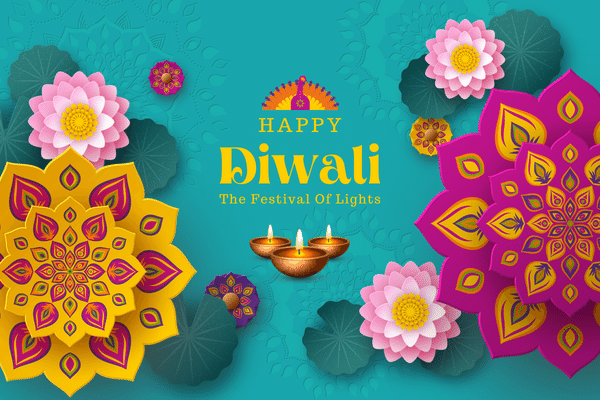
Canada welcomes around 300,000 immigrants from around the world every year who bring their traditions and cultures along with them. This contributes to making Canada one of the most diverse countries in the world.
In 2016 the South Asian population in Canada was 1,963,330, and an exciting part of their religion is Diwali. Many ethnic groups celebrate Diwali, mainly people from India, Nepal and Sri Lanka. As Canada accepts many immigrants from this part of the world, Diwali is one of Canada’s most important religious holidays.
What is Diwali?
Diwali is a five-day festival celebrated by more than a billion people worldwide. Diwali is best known as the festival of lights, derived from the Sanskrit dipavali, which means “row of lights,” and known for the brightly burning clay lamps that celebrants line up outside their homes.
The five days of Diwali are marked by prayer, feasts, fireworks, family gatherings and charitable giving. For some, Diwali is also the beginning of the new year.
Diwali is celebrated yearly and usually falls between October and November; this year, it is celebrated on October 24, 2022. This Hindu lunisolar calendar looks at the movement of the moon and the sun from the earth, which determines the exact date for Diwali.
Diwali is so widely celebrated – an important religious festival for Hindus but also observed among Jains, Sikhs and Buddhists – that it has no single origin story. But while each religion has its historical narrative behind the holiday, they all ultimately represent the victory of good over evil.
Historically, Diwali can be traced back to ancient India. Stretching back more than 2,500 years, it most likely began as an important harvest festival. However, various legends are associated with the origin of Diwali. Many of these stories are about the triumph of good over evil.
Significance of Diwali
Every ritual of the Diwali festival has significance and a story behind it. Diwali symbolizes the spiritual victory of light over darkness, good over evil and knowledge over ignorance.
The lights of Diwali signify a time to destroy all our dark desires and thoughts, eradicate dark shadows and evils, and give us the strength and the zeal to carry on with our goodwill for the rest of the year.
Diwali unites people from coast to coast regardless of religious beliefs. It is a time when people embrace one another with joy and laughter. The festival is celebrated with an air of friendliness and holds an aura of purity.
Houses are illuminated with oil lamps, and fireworks fill the skies to show respect to the gods for attaining knowledge, health, wealth, peace and prosperity. It’s also believed that the sound of fireworks indicates the amount of joy people are having on earth to show the gods.
Celebrating Diwali in Canada
Compared to South Asia, Diwali celebrations differ in Canada, but the holiday spirit is the same. Many Canadian families celebrating Diwali decorate the outside of their homes with Diyas, oil lamps made of baked clay. Diyas are a ubiquitous sight during Diwali if you live in an area with a prominent South Asian population.
Fireworks are also common, especially in cities in the Greater Toronto Area and Vancouver, which both have a large South Asian population. You’ll be able to sight fireworks displays in almost every neighbourhood.
Due to Canada’s multicultural nature, Diwali has become not only a festival that South Asians celebrate but one that Canadians from many backgrounds celebrate too.

